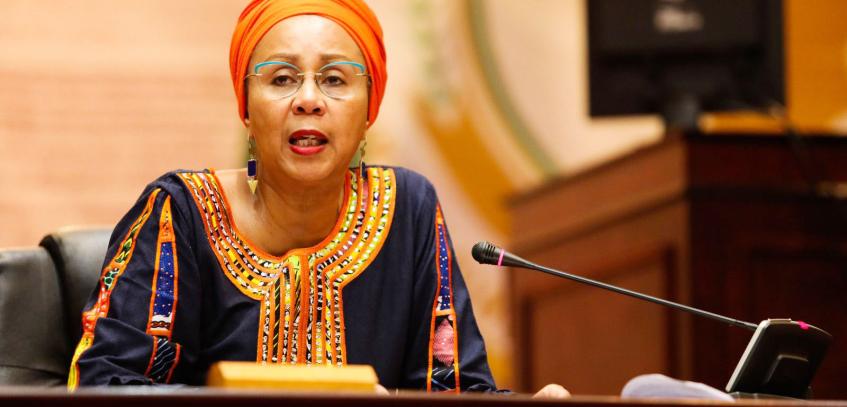UNAIDS Regional Director, Anne Githuku-Shongwe, believes that more women’s access to education and digital technology could set the tone for a better world.
She said this during the International Women’s Day celebrations held by Pan African Parliament (PAP)
The commemorations were held under the theme, “For an inclusive digital world: Innovation and Technology for Gender Equality”
“Women around the world have low levels of literacy and live in difficult conditions due to a lack of access to education and ICT; they do so despite the fact that we have the digital tools and means to protect them, but we don't use them; we know what they are capable of with such tools in their hands,” she said.
“As a result, girls and women are disproportionately affected by HIV, as seen by the statistic that 63% of individuals living with HIV today are women, with 4900 girls infected with HIV every single week in Africa, and the rate of infection is approximately three times higher than that for boys.”
Githuku-Shongwe also stated that a recent study they conducted revealed that the cost of action is less expensive than the cost of delay.
“The Cost of Inaction Study, done in Zimbabwe and South Africa recently, revealed that the costs of teenage pregnancy and violence against women are extremely high when compared to the cost of sending a girl child to school. It costs South Africa 10% of its GDP, whereas Zimbabwe pays 20%,” she said.
UNESCO's Remmy Shawa also spoke at the same event, emphasizing the importance of working together to promote legislation that respects human rights and gender equality in order to bridge the gender gap.
He also reiterated the need to transform education in order to develop entrepreneurial skills and innovation among pupils.
“We need to work together to develop laws that respect human rights and gender equality so as to break the gender divide, especially in education and ICT areas,” he said.
“We also need to revolutionize our education system; the days of learning about Vasco Da Gama's voyages from Portugal to India are long gone; instead, let us create an education system that promotes entrepreneurship and creativity,” said Shawa.
Hon. Khadija Arouhal, Deputy Chairperson of the PAP Committee on Gender, Family, Youth and Persons with Disabilities also bemoaned the digital gender divide.
“We still have a gender digital divide because of male-dominated technological systems,” she said.
“PAP needs to make laws that fight gender inequality even in digital spaces as women need digital tools to be empowered for the future.”
-Ends-








